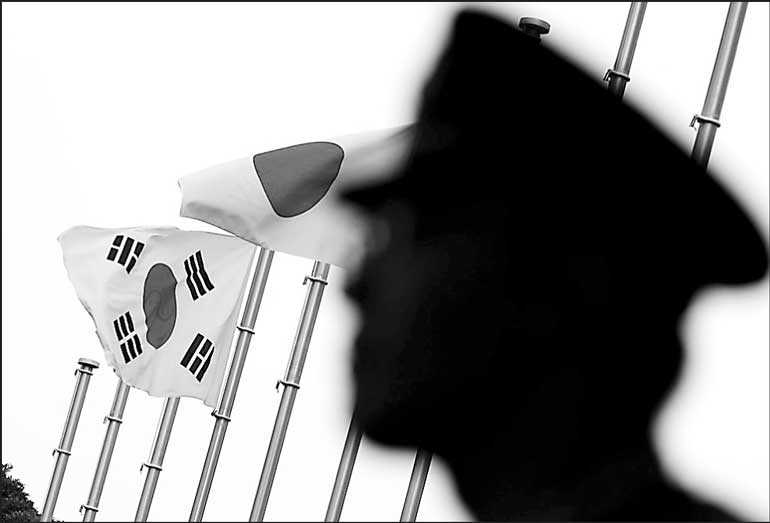Saturday Feb 21, 2026
Saturday Feb 21, 2026
Saturday, 23 November 2019 00:00 - - {{hitsCtrl.values.hits}}

SEOUL (Reuters): South Korea is set to let lapse an intelligence-sharing pact with Japan on Saturday amid a bitter feud over history and trade, defying mounting US pressure to maintain a key element of their trilateral security cooperation.
The expiry of the General Security of Military Information Agreement (GSOMIA) is likely to intensify discord between South Korea and the United States, which wants its two Asian allies keep their dispute out of security cooperation.
Seoul gave Tokyo three months’ notice in August for ending GSOMIA after Tokyo imposed export controls on South Korea over a dispute stemming from its 1910-45 colonisation of the Korean peninsula.
The accord will expire at Saturday midnight unless it is renewed. Both sides are refusing to budge, with Seoul urging Tokyo to lift its trade regulations first. Japan has called for GSOMIA to be maintained.
“Unless there’s a change in Japan’s attitude, our position is we won’t reconsider,” South Korean Foreign Minister Kang Kyung-wha told parliament on Thursday.
Japan’s Defence Minister Taro Kono said an expiry of the agreement would not have a direct impact on Japan’s security.
“But given the current situation with North Korea I have the concern that this could send a mistaken message to North Korea and other countries in the region,” he said, adding he thought Seoul would make a “sensible decision”.
GSOMIA was sealed in 2016 after a years-long US push for a better joint response to North Korea’s growing military threat.
Washington has been unusually strident in its public criticism of South Korea’s decision, which has not been the only source of tension in the relationship.On Tuesday, US negotiators broke off talks after South Korea rejected demands to hike its contribution five-fold to $ 5 billion to maintain 28,500 US soldiers as a buffer against North Korean aggression.
“The unprecedented breakdown showed the current state of the alliance, where money and business dealings are wearing away shared values and trust that formed its foundation,” said Kim Hong-kyun, a former South Korean deputy foreign minister.
Asked whether ending GSOMIA risked harming the alliance with the United States, Kang said such analysis was understandable but the decision was made “solely within the context” of Japan ties.
South Korea has pledged to continue security cooperation with Japan, including via a trilateral arrangement involving the United States.